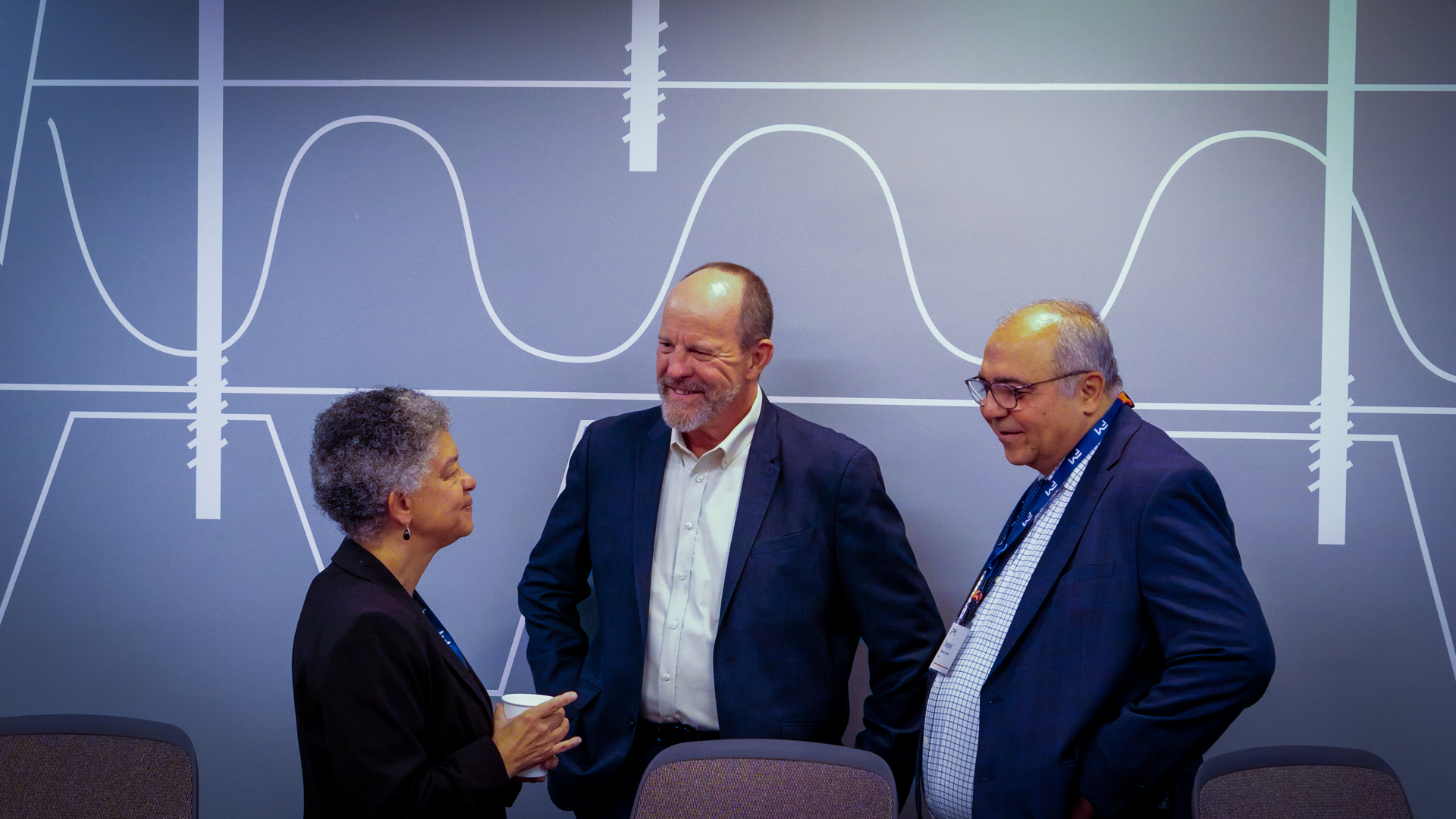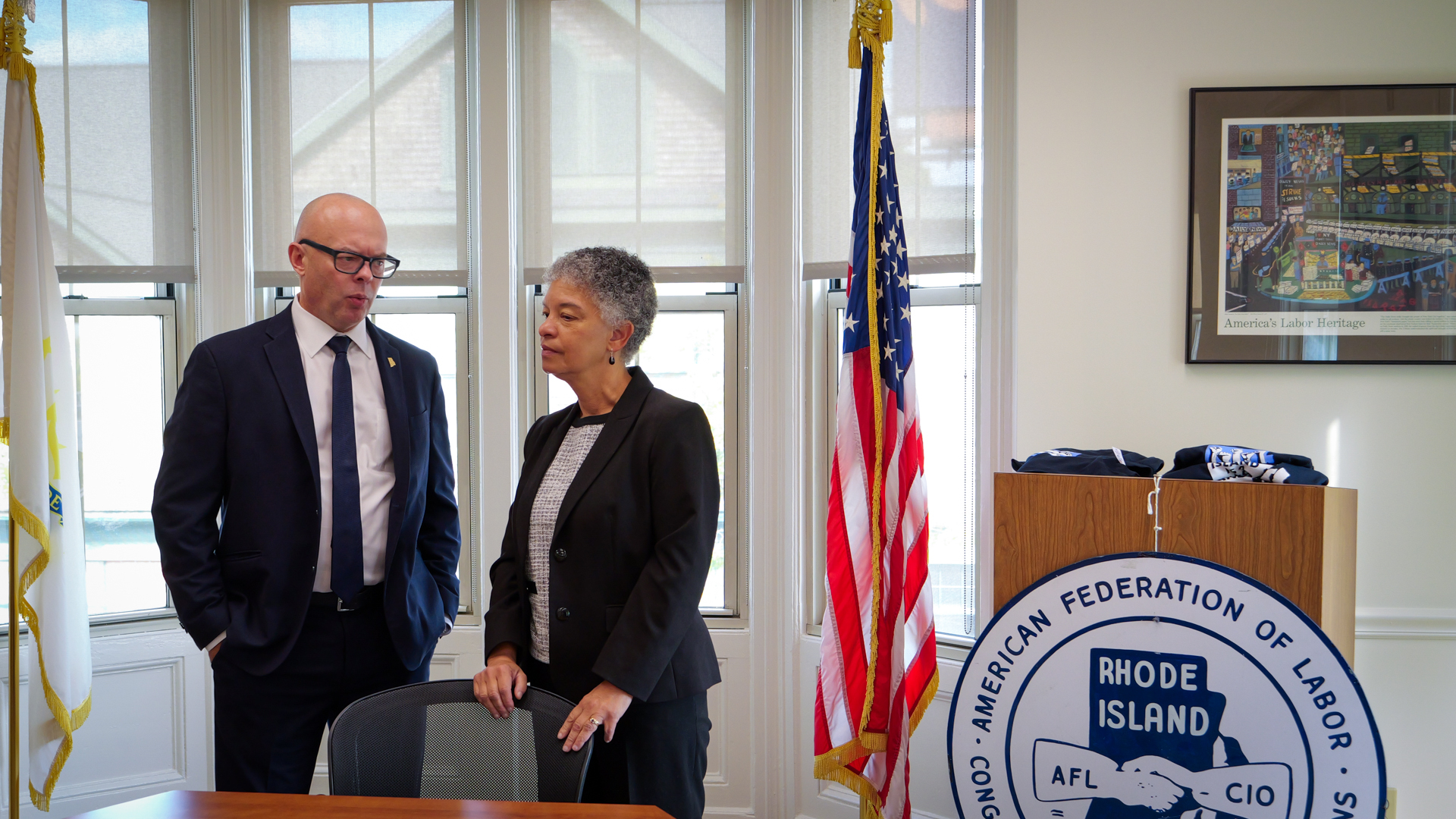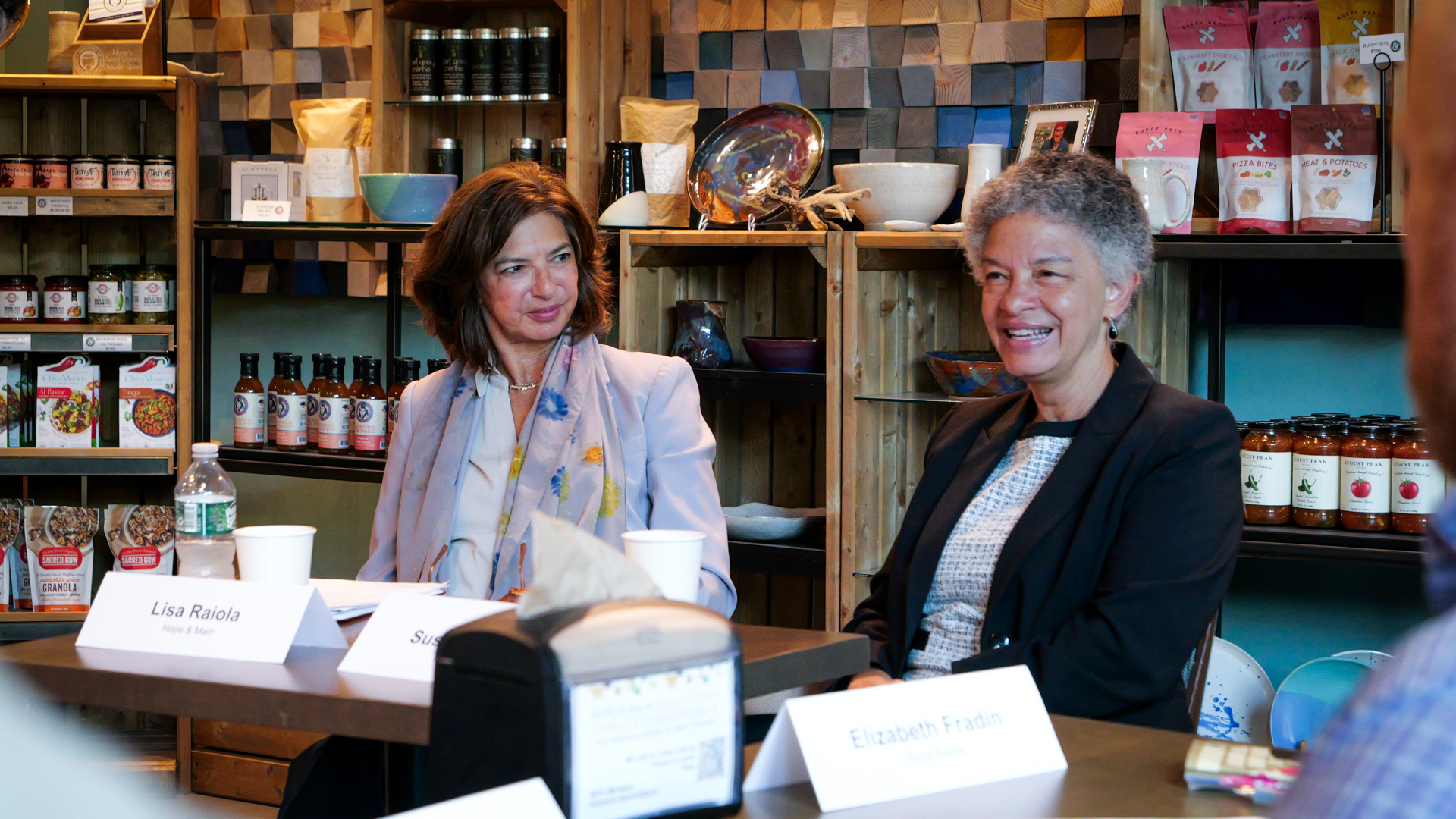Facing uncertainty: In RI visit, Boston Fed president hears from those confronting it, reducing it 
Collins meets with major employers, labor leaders, entrepreneurs 
Uncertainty is high in the current economic environment, and during a trip to Rhode Island on Tuesday, Federal Reserve Bank of Boston President Susan M. Collins met with a range of people facing it – and trying to reduce it.
The uncertainty surrounding artificial intelligence was a key topic for leaders of some of the state’s largest companies. Many were excited about AI’s potential, while others discussed navigating workplace adoption.
Collins was also part of a discussion with labor leaders about how elevated uncertainty – in variables like inflation and rising healthcare costs – is affecting the lives and jobs of their members.
And she spoke with entrepreneurs at a food services incubator who are taking on the unknown in a risk-filled environment in the hopes of building resilient small businesses.
Collins said the Fed wants to know how companies and business owners plan and react when it gets tough to tell what’s ahead.
“We’re doing a lot of thinking about how firms are meeting strong demand with fewer workers, and without hiring, and really connecting that to a couple of things – (including) all the uncertainty that’s out there,” she said.
3 images

AI’s potential energizes some, but adoption can be difficult
Collins began in Chepachet, Rhode Island, at FM, a commercial property insurer with an in-house arm that researches and certifies products for fire protection, cybersecurity, and climate resilience. On a tour of the campus, Collins watched controlled demonstrations that tested wind, fire, and flood prevention and mitigation, as well as how to deal with a dust explosion.
At a business roundtable that followed with leaders from several large Rhode Island firms, John Fernandez, president and CEO of Brown University Health, said uncertainty in health care over federal subsidies is “horrendous” right now. He said it’s making it tough for organizations to move forward, and some hospitals won’t survive if those subsidies are cut or eliminated.
“That means less jobs in small towns, medium towns, and even big towns,” he said.
The rise of AI is also increasing uncertainty, but many participants were optimistic about what it was making possible. For instance, Fernandez said it can speed up information-sharing between hospitals and insurance companies, particularly for inter-state patients.
“AI provides an opportunity to leap to the new and skip the sort of old-fashioned way we've done things,” he said.
Joy Cave, chief financial officer at AAA Northeast, said adopting AI represents a cultural shift that has to start at the top. "It's not an easy transition for everyone," she said, "but the people who've leaned into it are really helping us work smarter, move faster, and stay ahead."
2 images

Labor leaders: Workers feeling the pinch amid inflation and rising health care costs
Collins then traveled to Providence, where she met at the Rhode Island AFL-CIO with leaders of some of the state’s unions. There, groups representing health care workers, state and municipal workers, and tradespeople shared concerns that wages were lagging inflation and rising healthcare costs.
Desiree Leclair from the Healthcare Workforce Education Center said a “cascade” of economic impacts can come from deferring medical care due to high healthcare costs. She said if people are less likely to seek treatment, that can mean missing work, leading to even less money to pay for care.
Michael Roles, executive director of the Rhode Island Institute for Labor Studies and Research, said his organization wants to help people find quality jobs, so they can absorb higher costs.
For instance, one program partnered with the local public transit agency to provide training that could help address a driver shortage. “That driver shortage was solved,” Roles said.
3 images

Food business entrepreneurs face the unknown with worry, optimism
Collins ended her day with local food entrepreneurs who are part of the Hope & Main culinary incubator program at the Downtown Makers Marketplace in Providence.
The program helps jumpstart various food “micro-businesses,” from food trucks to specialty food manufacturers. So far, it’s helped more than 500 early-stage businesses navigate the food business sector. But Lisa Raiola, president and founder of Hope & Main, said economic uncertainty is taking a toll.
“You never want people to feel that the excitement is drained by the uncertainty, right?” Raiola said. “That's a hard thing to hear.”
Micro-businesses have far fewer resources and limited access to support systems compared to even small businesses, making it difficult to enable and scale their operation. Susanne Greelish of Ginger Gems, which sells ginger-based confections, said that’s been an issue for her, since she’s the only employee and owns none of her own machinery.
“I prayed, ‘Just make it through to my next production run,’” she said.
Benny Barber, Executive Chef of Hope & Main and owner of BSquared, which sells prepared foods, said he’s optimistic about what’s ahead.
“There’s every challenge that we could all come up with, but there’s got to be a solution,” he said. “And the solution … is togetherness and community to share the brunt of the expenses that are coming our way.”
Media Inquiries? 
Contact our media relations team. We connect journalists with Boston Fed economists, researchers, and leadership and a variety of other resources.

 About the Authors
About the Authors
Site Topics
Keywords
- uncertainty ,
- labor ,
- U.S. labor movement ,
- Susan M Collins ,
- Rhode Island






